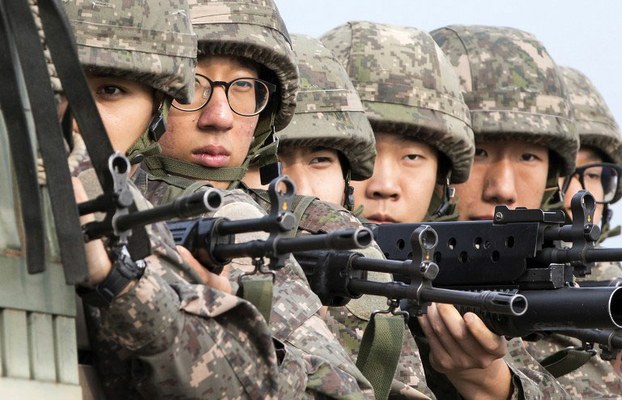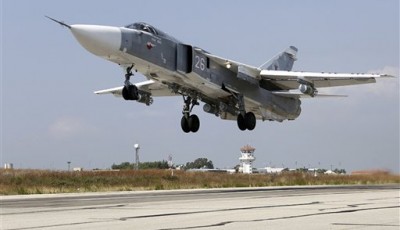North and South Korea end stand off after intense talks
The negotiations were aimed at ending a risky military stand-off which triggered a rare artillery exchange over the border last week, after which North Korean leader Kim Jong-Un ordered his frontline troops onto a war-footing.
The agreement, which was sealed after two days of long talks, stops the propaganda broadcasts against the North. The South had restarted them after two of its soldiers were injured by a landmine explosion earlier this month.
North and South Korean officials pose for a photo after wrapping up 43 hours of talks to reach a deal at the truce village of Panmunjom early Tuesday morning.
A spokesman for South Korea’s Defense Ministry reportedly said the North’s mass submarine deployment is “unprecedented”, and that the US and Seoul have responded by increasing their military surveillance.
Last week, the two Koreas exchanged artillery fire in the DMZ near a loudspeaker tower; there were no casualties or damage reported from the attacks.
“This is not a matter where we can back down, even if North Korea maximizes its provocations and threatens security like it did in the past”. (South Korea refuses to bear the costs of North Korean provocations and its economy is vulnerable to spikes in military tensions while North Korea fears its polity is increasingly vulnerable to South Korean propaganda dissemination.) But admission of vulnerability may lead either to closer inter-Korean relations or to the possibility of exploitation of the weakness of one side by the other.
South and North Korea have dialed back weeks of tensions that put them on the brink of armed conflict.
JoongAng Ilbo noted that “consumers remain deaf to (the) threat of war” and that the only report of panic in Seoul came from a North Korean propaganda website, which claimed that people were stockpiling necessities in Incheon city and flooding the airport there.
More than 50 out of North Korea’s around 70 submarines had previously been detected away from their bases for operations after the country threatened an “all-out war” against South Korea and ratcheted up its combat readiness posture.
Kim’s order “is a unusual concept because North Korea lives in a sort of perpetual quasi-state of war, though this could be significant as it’s directed at the troops, not the whole country”, said John Delury, a professor at Seoul’s Yonsei University.
Seoul agreed to Pyongyang’s key demand to halt cross-border anti-Pyongyang loudspeaker broadcasts.
The second round of the talks was marred by South Korean accusations that the North had tried to influence the peace process by military means.
The ruling Saenuri Party welcomed the agreement, crediting President Park Geun-hye for adhering to her principles and also heaping praise on South Korea’s top security advisor Kim Kwan-jin and Unification Minister Hong Yong-pyo for exercising patience throughout the talks.
The tourism project began in 1998 during an era of warmer ties and was a legitimate source of hard currency for the cash-strapped North, but Seoul suspended the tours in 2008 following the shooting death of a South Korean tourist there.
North Korea apologized for a landmine explosion that critically wounded two South Korean soldiers.












